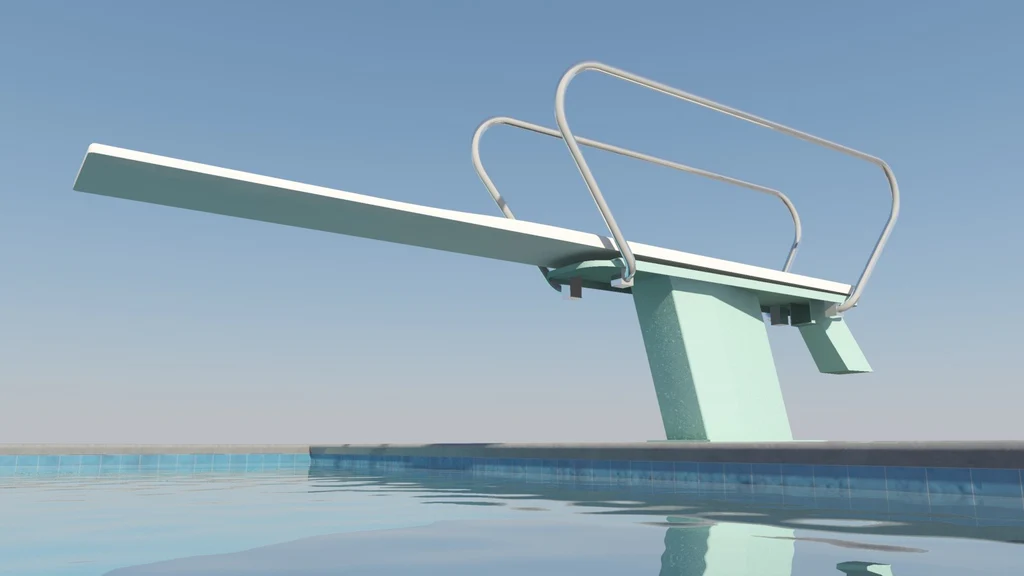
diving board
A diving board is a staple in many swimming pools, both residential and public. Whether you’re a recreational swimmer looking for fun or a competitive diver aiming to improve your skills, the right diving board can make all the difference in your swimming experience. A diving board is designed to provide a spring-like effect that launches the diver into the air before they enter the water.
In this article, we will explore the different types of diving boards, the factors to consider when choosing one, and how to use it safely. Whether you are installing a new diving board for your pool or just curious about its use, this guide will help you understand all the essential aspects.
Types of Diving Boards
There are several types of diving boards, each designed to serve a different purpose. Understanding these variations is crucial for choosing the right one for your needs:
1. Springboard Diving Boards
Springboard diving boards are the most common type used in both recreational pools and competitive diving events. These boards are mounted on a spring mechanism that allows for greater bounce and height, giving divers more air time. Springboards come in various lengths, with the standard being 8 to 10 feet. They are often made of fiberglass or wood and have a non-slip surface for safety.
Springboard diving boards are great for those who want to practice diving or for competitive events. They are designed to handle higher impact forces and are generally used by more experienced divers.
For more on springboard diving boards, check out Springboard Diving Boards.
2. Platform Diving Boards
Platform diving boards are stationary boards that do not have the bounce provided by a springboard. Instead, these boards are mounted on a solid platform, making them ideal for high diving events. Platform diving boards are usually higher off the ground than springboards, and divers perform a variety of acrobatic jumps and dives from them.
These boards are often used in professional diving competitions, such as the Olympics, where divers jump from a height of 10 meters or 3 meters. The lack of bounce makes platform boards perfect for highly skilled divers who can generate their own height and force from the platform.
Learn more about platform diving boards at Platform Diving Boards for Competition.
3. Residential Diving Boards
For those who are installing a diving board at home, residential diving boards are an excellent option. These boards are typically shorter in length than competitive boards and are designed with safety and fun in mind. Residential diving boards come in a variety of materials, including fiberglass, plastic, and wood.
These boards provide a more moderate bounce compared to springboard or platform boards, making them perfect for casual diving and family use. They are often paired with shallow pools to ensure safety for children or recreational swimmers.
Explore more about residential diving boards on Residential Diving Boards.
4. Adjustable Diving Boards
Adjustable diving boards are versatile boards that allow you to change the level of bounce. These boards can be adjusted to provide more or less spring depending on the diver’s skill level. This makes them ideal for both beginner and intermediate divers.
Adjustable diving boards are popular in training facilities and schools, as they can accommodate different ages and skill levels. The ability to adjust the board can help divers progress at their own pace.
To learn more about adjustable diving boards, visit Adjustable Diving Boards for Pools.
Choosing the Right Diving Board
When selecting a diving board for your pool, several factors should be considered to ensure it meets your needs. Here’s a breakdown of what to keep in mind:
1. Size and Length
The size of the diving board is one of the most important factors to consider. Residential diving boards are usually shorter, ranging from 6 to 8 feet in length, while competition diving boards typically range from 8 to 10 feet. The length of the board determines how much bounce it provides, with longer boards offering more spring.
2. Material
Diving boards are made from different materials, each with its own advantages:
- Fiberglass: This is one of the most common materials for springboards and platform boards. It is lightweight, durable, and offers a great bounce.
- Wood: Wood is traditionally used for springboards, offering a more natural feel and a slightly different bounce than fiberglass.
- Plastic: Plastic boards are often used for residential pools as they are affordable and require less maintenance.
3. Bounce and Flexibility
The bounce or spring of the board is essential for diving. If you’re looking for a board that offers high bounce, a springboard diving board is the best choice. For casual use or if you’re just starting, a lower bounce board may be more suitable. Adjustable diving boards give you the flexibility to control how much bounce you want based on your level of experience.
For more on how to select the right diving board based on bounce, visit Diving Board Selection Guide.
4. Safety Considerations
When choosing a diving board, safety should always be your top priority. Make sure to select a board that is built to last and meets safety standards. Shallow pool depths should be avoided for deep dives, and it’s essential to ensure your pool is deep enough to accommodate the height of the board.
Non-slip surfaces and proper installation are also critical in preventing accidents. It is recommended to have a professional install your diving board to ensure it is secure and safe for use.
5. Weight Limit
Most diving boards have a weight limit, which is important to consider, especially for family pools. Be sure to check the specifications for the weight limit to ensure that the board can accommodate the intended users.
Benefits of Having a Diving Board
A diving board adds several benefits to your pool experience, including:
- Fun and Entertainment: Diving boards provide endless hours of fun for family and friends. Whether you’re just jumping for fun or practicing competitive dives, it adds excitement to pool time.
- Improves Diving Skills: For competitive divers, having access to a diving board at home allows for consistent practice and skill improvement.
- Increases Property Value: A high-quality diving board can make your pool more attractive to potential buyers if you ever decide to sell your home.
Conclusion
A diving board is a fun and practical addition to any pool, whether you’re a beginner or a seasoned diver. Choosing the right type of diving board, whether it’s a springboard, platform, or residential diving board, depends on your specific needs and goals. With proper installation and safety precautions, a diving board can enhance your swimming experience and provide hours of enjoyment for all ages.
For more information on diving boards and pool accessories, check out Diving Board Store.





